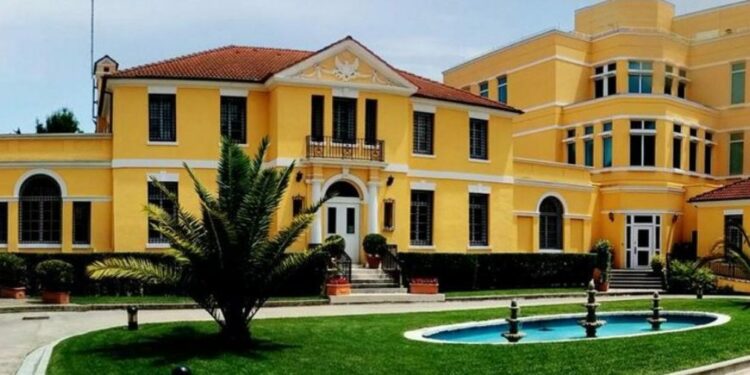
In Albania’s polarized political landscape, the U.S. Embassy’s recent statement reaffirming its refusal to engage with individuals designated for corruption marks another inflection point. The message—delivered by Chargé d’Affaires Nancy Van Horn—reiterates a long-standing position: “We do not engage with individuals designated for major corruption.” While diplomatically consistent, the pronouncement reignites a debate over fairness, hypocrisy, and the balance of influence in Albania’s turbulent political arena.
At the heart of the controversy are two familiar figures: Sali Berisha, the veteran opposition leader and former prime minister, and Edi Rama, the current prime minister whose party dominates Albania’s institutions. For the opposition and its supporters, the U.S. stance is seen as disproportionately punitive, while the government—despite credible corruption allegations and convictions within its ranks—continues to enjoy diplomatic engagement.
The U.S. Position and the “Berisha Question”
Sali Berisha, a towering figure in Albanian politics for three decades, was designated persona non grata by the U.S. State Department in May 2021 for “corrupt acts that undermined democracy”. Though the designation is based on intelligence assessments and diplomatic criteria, it is not a judicial conviction. Berisha, for his part, has vehemently denied the allegations, dismissing them as politically motivated and orchestrated to weaken Albania’s opposition.
For his supporters, the U.S. decision raises uncomfortable questions: How can a political figure be shunned without due process? Why is there no similar treatment for high-profile figures in the government? Critics point out that the absence of formal charges or court rulings against Berisha contrasts starkly with individuals in Edi Rama’s Socialist Party, some of whom have been convicted by Albania’s Special Anti-Corruption Structure (SPAK).
The Rama Paradox
Prime Minister Rama has positioned himself as a reformist and pro-Western leader, a consistent advocate for Albania’s European integration. His government has overseen significant anti-corruption initiatives, particularly under SPAK—a judicial body formed with international backing to dismantle organized crime and endemic corruption.
Yet the Rama administration has not been immune to scandals. Senior officials, party appointees, and local leaders have faced convictions for abuse of power, embezzlement, and illicit enrichment. Critics argue that while Rama’s rhetoric aligns with U.S. and EU priorities, his government’s internal dynamics tell a different story—one of selective accountability, patronage networks, and political impunity.
The irony is not lost on opposition supporters: if the U.S. policy is to avoid individuals tainted by corruption, why does engagement continue with a government repeatedly marred by judicial findings? The answer, perhaps, lies in pragmatism. Rama’s government provides a stable partner in a geopolitically sensitive region, where Western allies seek predictability over political volatility.
The Broader Implications
The U.S. refusal to engage with Berisha reflects a principled stand against corruption but also fuels a perception of bias. In a country where public trust in institutions is fragile, such perceptions carry weight. For Berisha’s Democratic Party, the designation has become both a liability and a rallying cry—proof, they argue, of an uneven playing field.
Meanwhile, Rama leverages his government’s relationship with Western allies to reinforce his legitimacy. The Socialist Party’s dominance, combined with external backing, leaves Albania’s opposition fragmented and often sidelined. As the next electoral cycle looms, the interplay between judicial action, U.S. diplomacy, and domestic politics will shape Albania’s democratic trajectory.
A Test for Democracy
At its core, the controversy underscores a larger issue: Albania’s struggle to build a political system where accountability is universal and justice is blind. The U.S. role—while vital in supporting reforms—risks unintended consequences if perceived as selective. Berisha remains a divisive figure, but his designation raises questions that go beyond one man’s political fate.
For Albania’s democracy to thrive, anti-corruption efforts must transcend political affiliations. A government’s legitimacy cannot rest solely on international partnerships; it must be earned through transparency, accountability, and equal application of the law. Until then, the U.S. Embassy’s message—however principled—will continue to spark debate in a country where trust in institutions remains precarious, and politics is rarely black and white.
In the court of public opinion, both Berisha and Rama face scrutiny—but it is Albania’s democracy that remains on trial.
